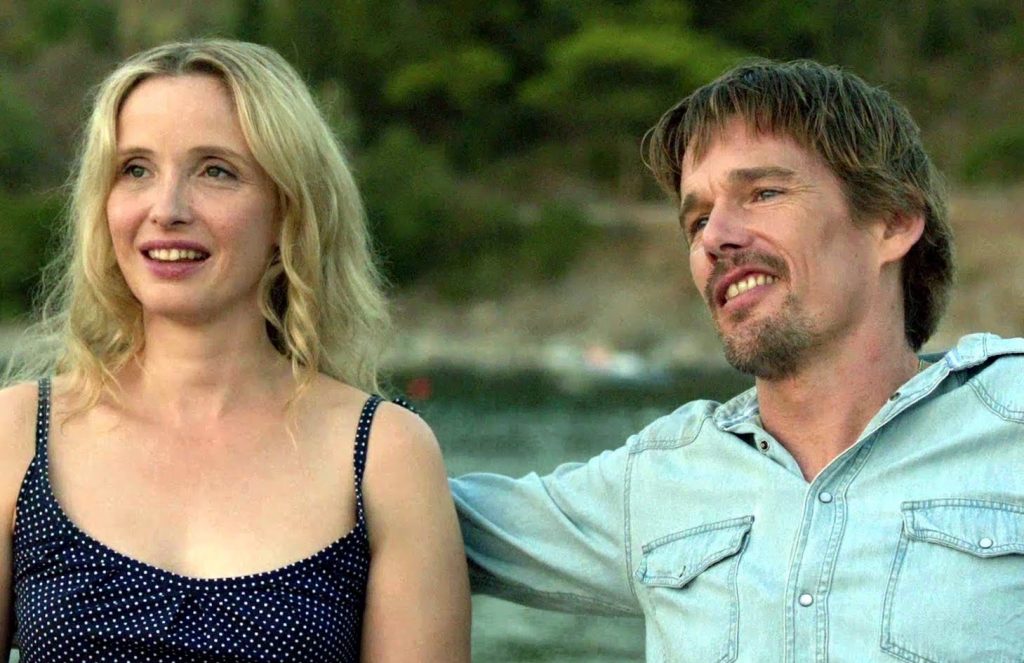Trilogy Anatomy: Before Midnight, by Tober Corrigan
2 Jul
Upon being asked after the release of the Dark Knight if he had a third installment planned, Christopher Nolan replied with asking ironically how many good third movies there were. Of course, Nolan eventually did complete his trilogy, whether it being against his better judgment or not depending on who one talks to. Throughout movie history, the essential functions of the third film in a series have either been as a fitting and satisfactory end to a particular storyline (Lord of the Rings: Return of the King), a disappointing but nevertheless conclusive entry (Godfather III), or a debacle so big as to necessitate a reset to the franchise (Superman III/Spiderman 3, etc., etc.). In anticipation of another highly-anticipated third film, War for the Planet of the Apes, this weekly series will cover famous third films, infamous third films and otherwise, exploring how trilogy-enders or other types of third films have functioned in relation to its series.
Popularly referred to as the least financially successful movie series of all time, Richard Linklater’s Before trilogy has had a strange and intriguing history. Starting in 1995 on a modest budget (though, honestly, all three have had modest budgets), Linklater—along with stars Ethan Hawke and Julie Delpy, all co-writers for the three movies—told a simple but charming story of Jesse and Celine, who meet in Europe and spend the evening together along ancient streets and with idiosyncratic characters. Before Sunrise didn’t make much money, but the film resonated enough with the three main collaborators to result in a sequel nine years later, Before Sunset, no one saw coming. Just as watchable and unpredictable as the first one, plus some added poignancy by way of nostalgia, Sunset made similar amounts of money, but with a heap of critical acclaim. It was a touching end to the story of Jesse and Celine.
Or so we thought. Once again, no one believed the release of a third film in the series, nearly ten years later again, to be really happening. Yet Before Midnight, the 2013 continuation of the Jesse-Celine saga, does exist. It follows the first two in conceit (walking and talking through European cities), but takes enough chances to divide consensus right down the middle.
One of the great risks came in spoiling the marvelous ambiguity Before Sunset left its audience with. Many consider the final line and shot of that movie to be among the most effective of all time (me among them) and so knew there was much danger in answering a question few secretly wanted answered: will Jesse and Celine, after finally reuniting all these years later, end up together? Since we have Before Midnight, most can assume what that answer is. Yet Midnight presses that same question over and over, eventually reframing the question to, will Jesse and Celine remain in love? Despite having twins and living together since Sunset, Linklater’s third outing chooses to capture the couple in a crisis point, ironically while on a vacation in Greece. Bravely, the film commits to never resolving the status of their affections outright. It has become a sort of series staple to leave us hanging.
Along the way, the two get into real heated arguments. They wound each other in ways more vulnerable and lasting than the first two films ever could. Sunrise was saccharine and light; Sunset got heavy and emotional but only after a slow build; but Midnight’s mood, like that of its leads, proves schizophrenic and often quite dour. Again, many fans of the first two are fans of the first two because of the charm and the romance of both the setting and the circumstance. Many have likened Sunrise and Sunset to fairy tales, and Midnight is about as far from that aesthetic as possible. For the sake of realism, the move towards the complicated makes sense. For the first time in the series, Jesse and Celine have baggage; they’ve lived together now for nine years, with time inevitably annihilating whatever ideals the two held before.
This must inevitably lead to resentment and hurt, but not on the level few imagined for Midnight’s final set piece, a hotel room conversation written with the touch of a veteran playwright. It contains nearly half an hour of fits, starts, outrage, and conciliations. All the sins of the past are laid before us, and themselves. In this the third film proves to bravely go where the second film never went before: showing us that there are consequences for our actions. Like a venomous double-edged sword, the choice that Sunset wanted us to believe Jesse should take (to be with Celine and leave his wife and child) end up being the core of the resulting 100 minutes of conflict in the third film. Again, an alienating move for loyal audiences, but Linklater, a director known for trying new forms and genres, seems never afraid to take the risk, even in as beloved a series as this.
Unfortunately, the first act is less assured. Whenever it’s just Hawke and Delpy, the screen crackles with their energy. Not a step has been missed. But the screenwriters take one more risk, this one not so successful; they include a rather unnecessary subplot involving three Greek couples Jesse and Celine have come to befriend while away. The conversations between them, with all ages and stages represented, occasionally sparkle with the sort of pop intellectualism expected from a Linklater script, but not without extremely indulgent asides. It doesn’t take long to see these side characters as reinforcements of the theme that true love, like life, is ephemeral. The audience never needed such tone-deaf moralizing before, so why the writing trio found it necessary here is dumfounding.
More egregious is the departure in style from the first two. Linklater’s longtime DP collaborator Lee Daniel is not on this project, and it shows. Midnight gives up the grit and dark romance of the first two for a digital sheen that feels too slick for its subject matter. There are strange, nearly inexplicable shots of goats and other faceless landscapes that feel so out of place for this series, so ungrounded from the series’ aesthetic. The choices are not unforgivable, just puzzling. Similarly, non-diegetic music holds a force not claimed before in the series. A light piano motif crops up in emotional moments. The music is fine; it properly makes more poignant the scenes that already work. It ultimately dilutes the organically weaved diegetic music of the first two, and the naturalism that came from it. Linklater has never been a particularly stylish filmmaker, but the decision to go glossy and over-produced results in major formal missteps.
Midnight is an earnest, very mature, and well-deserved entry in a series near and dear to my heart. The film’s worst tendencies only show in subsequent viewings. What always remains though, and what keeps this film an excellent trilogy capper, is in the ability of the two leads to, despite it all, make us fall in love with them one more time.





No comments yet